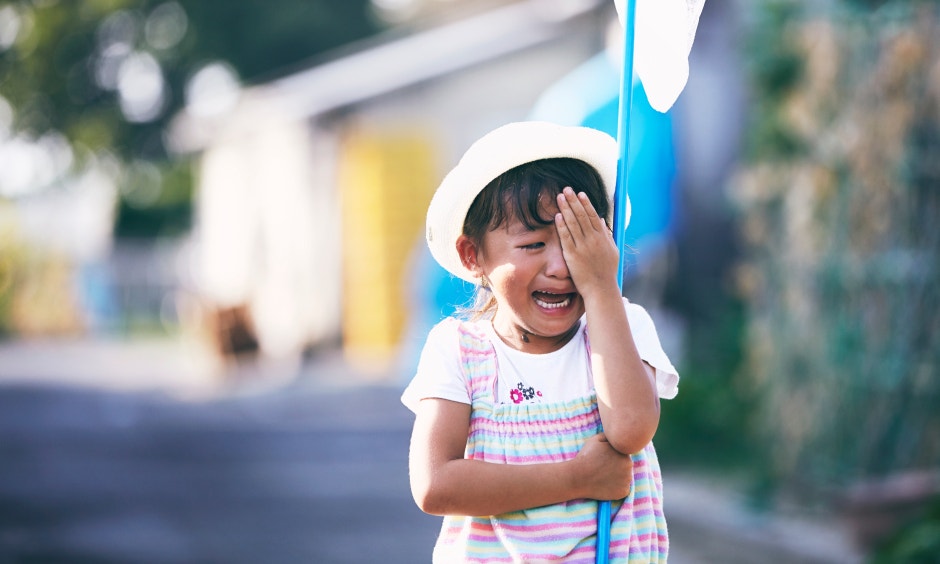Doing This To A Kid Causes Lasting Psychological Damage, Says Study
Disturbing.
 Getty
Getty Were you spanked as a child? If so, you probably remember it vividly. I know I do. I was spanked on a number of occasions, with a number of instruments — everything from a stick of bamboo to an old leather belt. Oddly enough, I don't remember what I did to get the spanking and if the behavior immediately stopped.
I do remember that the anticipation of getting spanked was terrifying. I know that my parents thought that spanking was a fast, effective way to make their point. It wasn't used to abuse me in any way, but the truth is, they could have come up with better ways to punish me.
A recent study from the University of Texas at Austin and the University of Michigan, published in this month's Journal of Family Psychology, has found that the more kids get spanked, the more likely they are to defy their parents, experience anti-social behavior, behave aggressively, have mental health problems and cognitive difficulties.
The researchers looked at five decades of research involving over 160,000 children; it was the most complete analysis to date of outcomes associated with spanking, and more specific to the effects of spanking alone than previous studies (which generally included other types of physical punishments.
"Our analysis focuses on what most Americans would recognize as spanking and not on potentially abusive behaviors," said Elizabeth Gershoff, an associate professor of human development and family sciences at The University of Texas at Austin. "We found that spanking was associated with unintended detrimental outcomes and was not associated with more immediate or long-term compliance, which are parents' intended outcomes when they discipline their children."
The results of the study were not good. Gershoff and the study's co-author, Andrew Grogan-Kaylor, found that the more adults were spanked as children, the more likely they were to develop a range of negative outcomes later in life.
"The upshot of the study is that spanking increases the likelihood of a wide variety of undesired outcomes for children," Grogan-Kaylor said. "Spanking, thus, does the opposite of what parents usually want it to do."
These are the negative consequences that come from spanking a child.
1. Abusive behavior
A study published in Child Abuse and Neglect revealed an intergenerational cycle of violence in homes where physical punishment was used. Researchers interviewed parents and children aged three to seven from more than 100 families.
Parents who had experienced frequent physical punishment during their childhood were more likely to believe it was acceptable and they frequently spanked their children. Their children, in turn, often believed that spanking was the appropriate disciplinary method.
2. Antisocial behavior
Children who were physically punished were more likely to endorse hitting as a means of resolving their conflicts with peers and siblings.
"You cannot punish out these behaviors that you do not want," said Alan Kazdin, PhD, a Yale University psychology professor. "There is no need for corporal punishment based on the research. We are not giving up an effective technique. We are saying this is a horrible thing that does not work."
3. Mental health problems
In the study, Physical Punishment and Mental Disorders researchers found that the use of physical punishment to discipline children can be linked to increased odds of mood disorders, alcohol and drug abuse, and several personality disorders. In fact, two to seven percent of mental disorders were attributable to spanking.
4. Physical danger
"Physical punishment doesn't work to get kids to comply, so parents think they have to keep escalating it. That's why it is so dangerous," Gershoff said in an interview with the American Psychological Association.
It's difficult, especially when you're a child to differentiate between being spanked and being physically abused. They feel exactly the same.
"We as a society think of spanking and physical abuse as distinct behaviors," Gershoff said. "Yet our research shows that spanking is linked with the same negative child outcomes as abuse, just to a slightly lesser degree."

